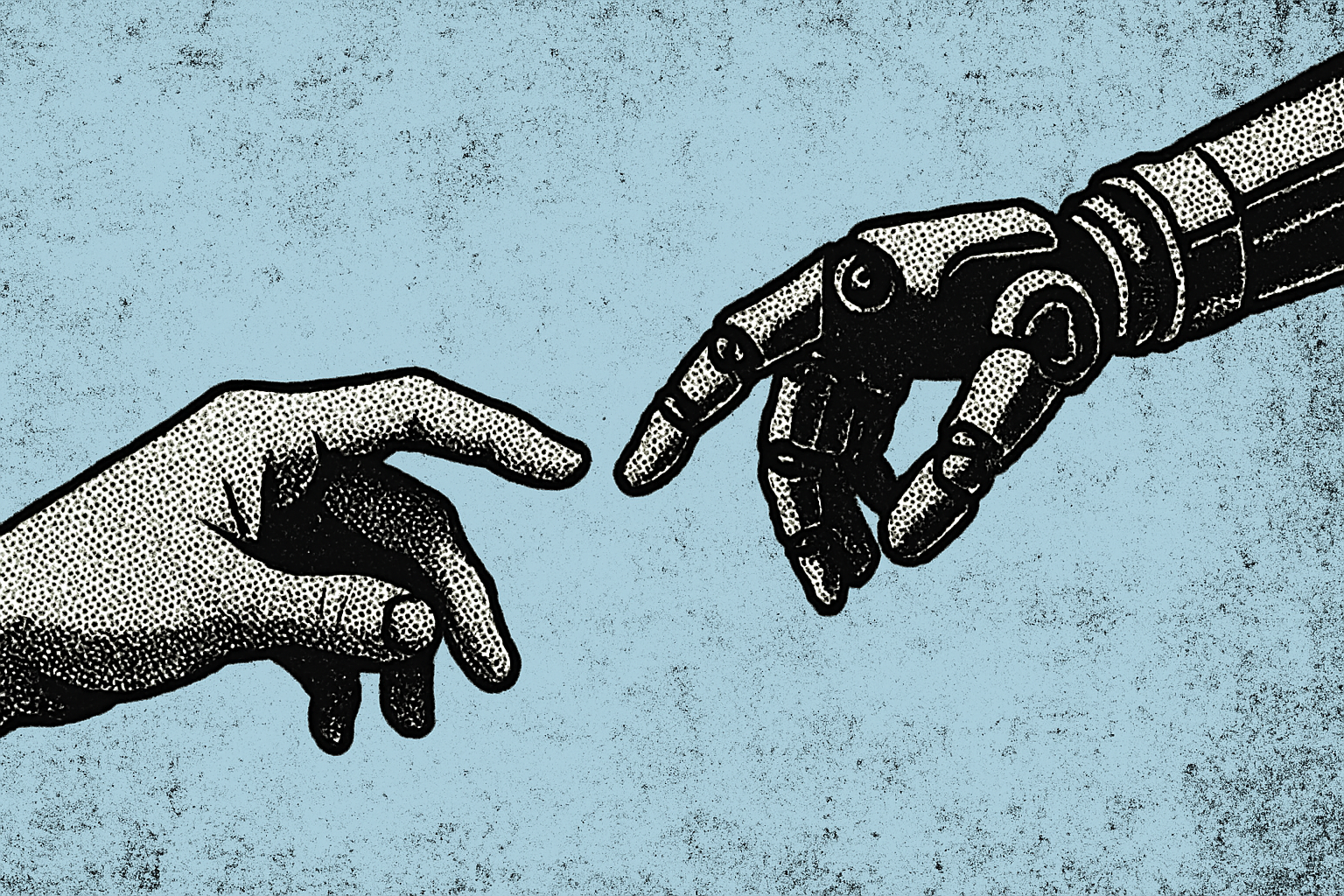The Human-Machine Partnership - How Vertex is Redefining Venture Capital Through Technology and Data
Vertex Holdings30 Jul 2025A conversation with Kwan Chong Tan, Head of Technology at Vertex Holdings on the future of AI-augmented investing
The venture capital industry has always prided itself on being relationship-driven, built on handshakes, gut instincts, and the ability to spot the next unicorn through sheer human intuition. But as we stand at the precipice of 2025, with AI companies capturing over 50% of global VC funding and generative AI investments nearly doubling to $45 billion in 2024 alone, it's clear that the industry is undergoing a fundamental transformation.
At Vertex, we've been quietly building something revolutionary: a proprietary technology platform that doesn't replace human judgment but amplifies it. As our Head of Technology Kwan Chong (KC) puts it, "We believe in the concept of human-machine augmentation delivering results that outperform humans operating independently. VC is a very competitive space, and any edge that we can get from using data or AI can reap significant benefits."
This isn't just about keeping up with trends—it's about survival in an increasingly competitive landscape where the difference between finding the next breakthrough company and missing it entirely can be measured in milliseconds, not months.
Breaking Down the Barriers: The Data Challenge

The dirty secret of venture capital has always been its data problem. Unlike public markets with standardized reporting and real-time feeds, early-stage investing operates in a world of fragmented information, relationship-dependent deal flow, and gut-feel decisions backed by limited quantitative analysis. For an industry that prides itself on identifying the future, we've been surprisingly analog in our approach.
"Quality of data capture is important for the success of any data system," KC explains. "We have developed features to reduce the barriers for data entry such as auto syncing with emails, browser extensions to clip articles, mobile friendly interfaces." But technology alone isn't the answer—it's the human element that makes the difference. "People and processes are vital as well, and users need to appreciate the value that such platforms bring and be diligent in adhering to processes."
This human-centric approach to technology adoption reflects a broader truth about the current AI revolution in VC. While 82% of PE/VC firms were actively using AI by Q4 2024—up from just 47% the previous year—the most successful implementations aren't those that eliminate human involvement, but those that enhance human capabilities.
The challenge is particularly acute in early-stage investing. "Early stage data on companies is scarce," KC notes, "so we have to work with external data providers and be creative in the approaches to source relevant startup data." This scarcity forces firms to become more sophisticated in their data aggregation and analysis, combining traditional sources with alternative data streams—from patent filings and social media signals to hiring patterns and customer testimonials.
Beyond Deal Sourcing: The Value Creation Revolution
While much of the industry conversation around AI in VC focuses on deal sourcing and due diligence, the real transformation is happening in value creation. This is where Vertex's approach becomes particularly compelling. "Assisting portfolio companies in entering new markets is one of the key value creation work that our platform team does," KC explains. "We use technology to help us organise our network contacts as well as identify partners we can reach out for collaboration."
This represents a fundamental shift in how VCs think about their role. No longer are we just capital providers making binary investment decisions; we're becoming orchestrators of complex ecosystems, using AI to identify synergies, facilitate introductions, and accelerate growth trajectories across our portfolio companies.
The implications are profound. AI agents can now "automate manual tasks as well as conduct research and draft content," as KC describes. "This reduces the time and effort for humans to do this work as ensure better coverage and higher quality outcomes." But more importantly, it allows human partners to focus on the uniquely human aspects of value creation—strategic thinking, relationship building, and the kind of nuanced judgment that comes from years of experience.
The Agentic Future: Where Human Meets Machine

Looking ahead, KC identifies agentic AI as the technology that will most dramatically reshape venture capital operations over the next 3-5 years. "It will be interesting to track how virtual agents continue to expand in the range of knowledge work they can perform and even push the boundaries further by taking on distinctly human centric work e.g. participating in meetings and conferences, networking at events and communicating with other agents."
This vision of AI agents networking with other AI agents opens up fascinating possibilities—and challenges. Imagine a future where your portfolio company's AI agent can directly communicate with potential customers' AI agents to identify partnership opportunities, or where investment decisions are informed by real-time conversations between AI systems analyzing market trends, competitive landscapes, and founder capabilities simultaneously.
But this future also raises critical questions about authenticity and relationship-building in an industry built on trust. Can an AI agent truly replicate the nuanced judgment required to assess founder-market fit? Can it build the deep, personal relationships that often determine whether a struggling startup receives follow-on funding or strategic support during difficult times?
The Competitive Imperative
The reality is that these philosophical questions may be secondary to competitive necessity. As KC notes, "VC has traditionally been one of the industries that is slower to adopt new technologies. One reason is the high human touch required in the business." But that's changing rapidly.
Recent data shows that firms using AI-powered deal sourcing are identifying 40% more relevant opportunities than those relying on traditional methods. More importantly, they're doing so with greater precision—reducing the noise-to-signal ratio that has historically made venture capital such a time-intensive business.
The firms that master this human-machine partnership first will have a significant advantage. They'll be able to process more deals, conduct deeper due diligence, provide better value-add services to portfolio companies, and ultimately generate superior returns. Those that don't risk being left behind in an increasingly data-driven world.
The Path Forward: Augmentation, Not Replacement
What makes Vertex's approach particularly compelling is its focus on augmentation rather than replacement. We're not trying to build AI systems that make investment decisions autonomously. Instead, we're creating tools that make our human investors more effective, more informed, and more capable of adding value.
This philosophy extends to our portfolio companies as well. By developing proprietary technology platforms, we're not just improving our own operations—we're creating tools and insights that can benefit the entire ecosystem of companies we support.
The future of venture capital won't be about choosing between human intuition and machine intelligence. It will be about creating seamless partnerships between the two, where AI handles the data processing, pattern recognition, and routine tasks, while humans focus on relationship building, strategic thinking, and the kind of creative problem-solving that drives breakthrough innovations.
As we look toward 2025 and beyond, the question isn't whether AI will transform venture capital—it's whether firms will embrace this transformation thoughtfully and strategically. At Vertex, we're betting that the future belongs to those who can master the art of human-machine collaboration, creating investment platforms that are more than the sum of their parts.
Kwan Chong Tan is Head of Technology at Vertex Holdings, where he oversees the development of proprietary technology platforms that enhance deal sourcing, portfolio management, and value creation across the firm's investment activities.
/f/233941/1994x1049/82745ebd8e/ai-drawing.png)